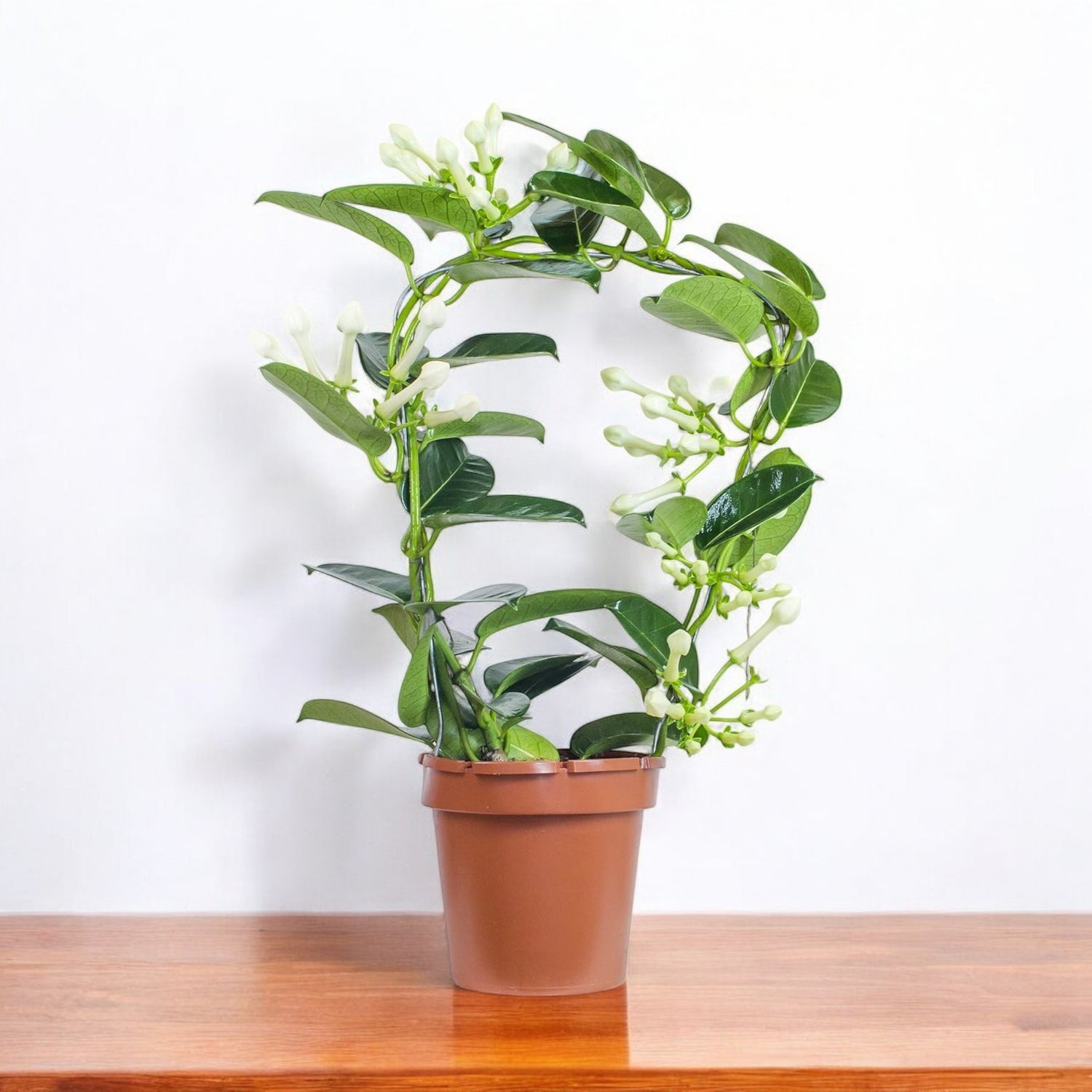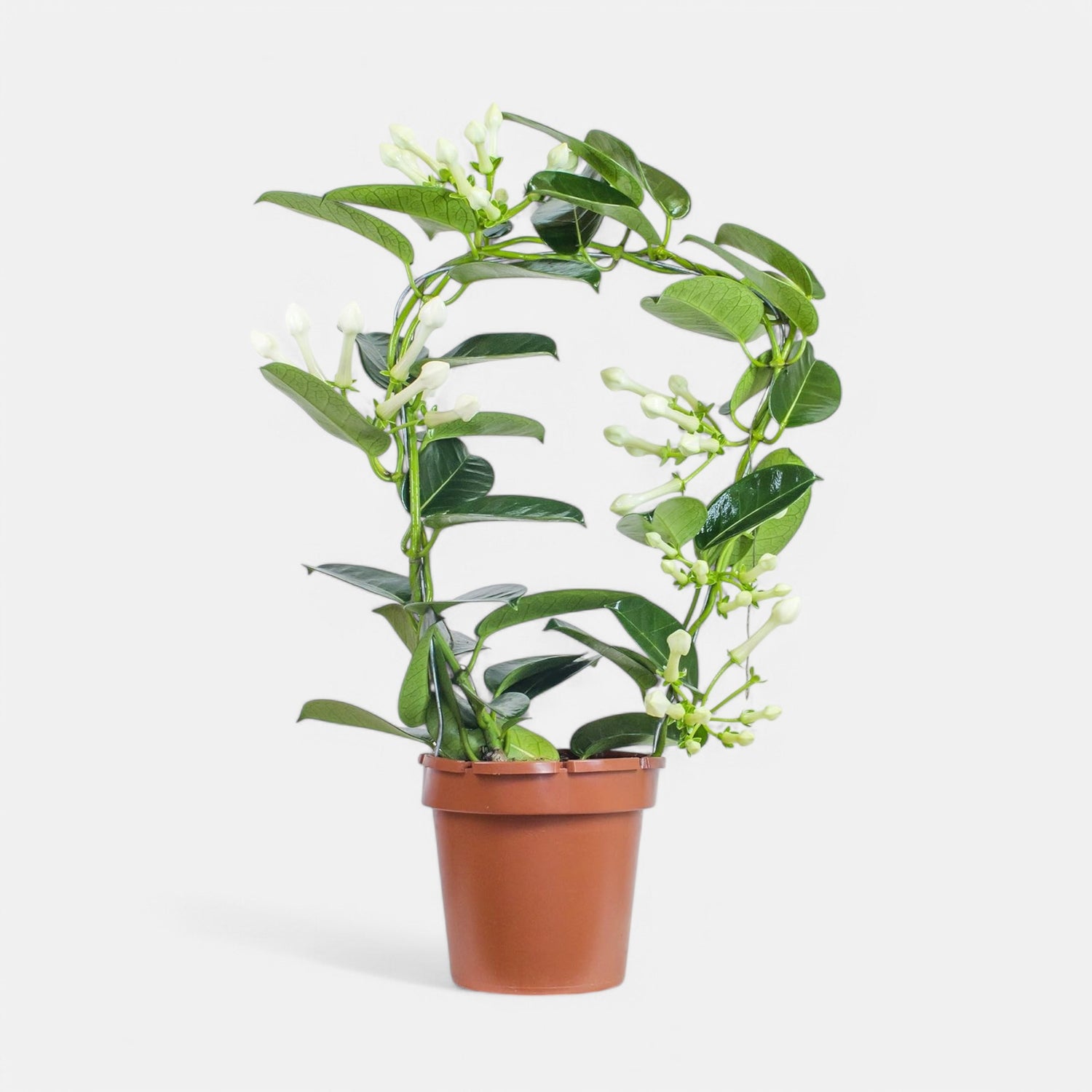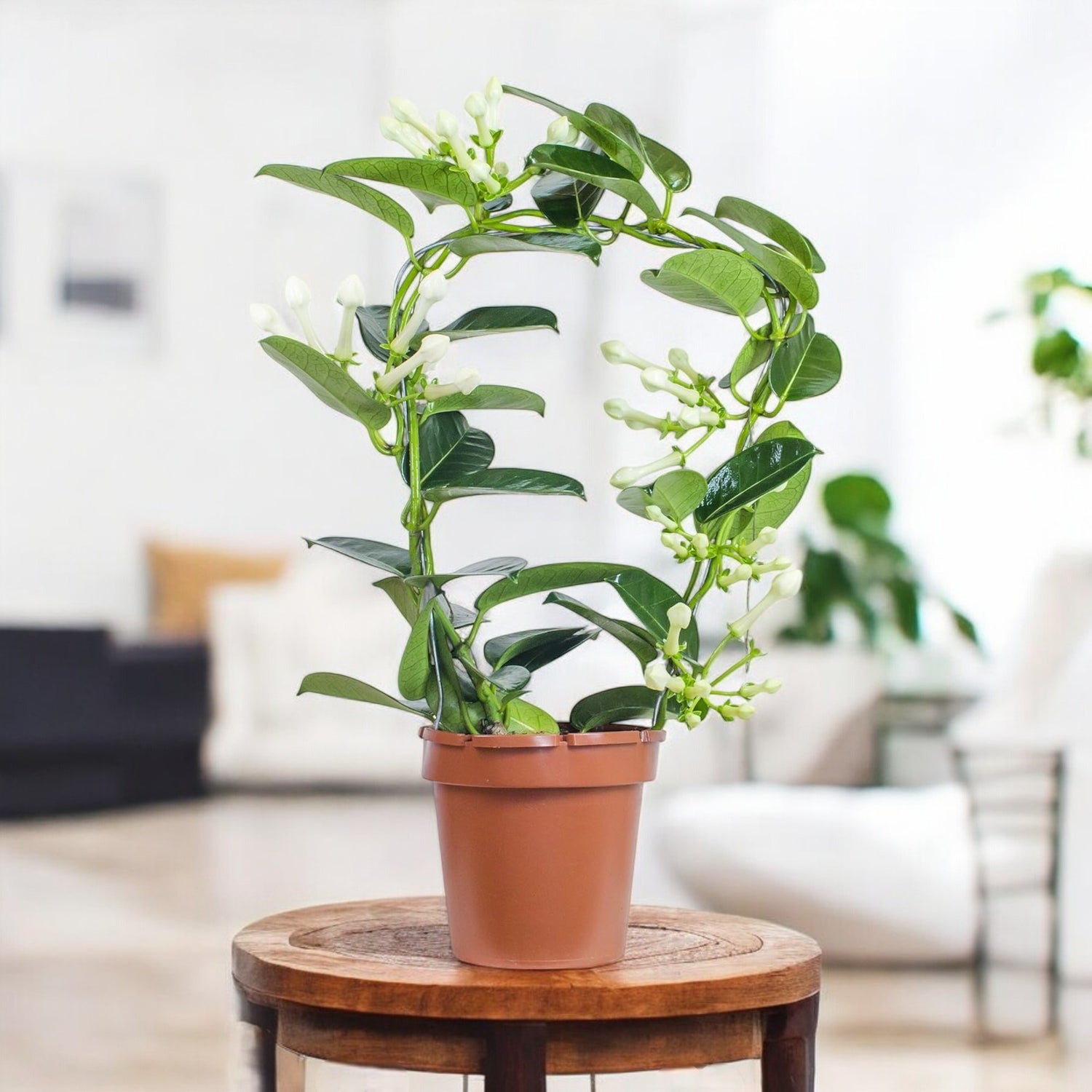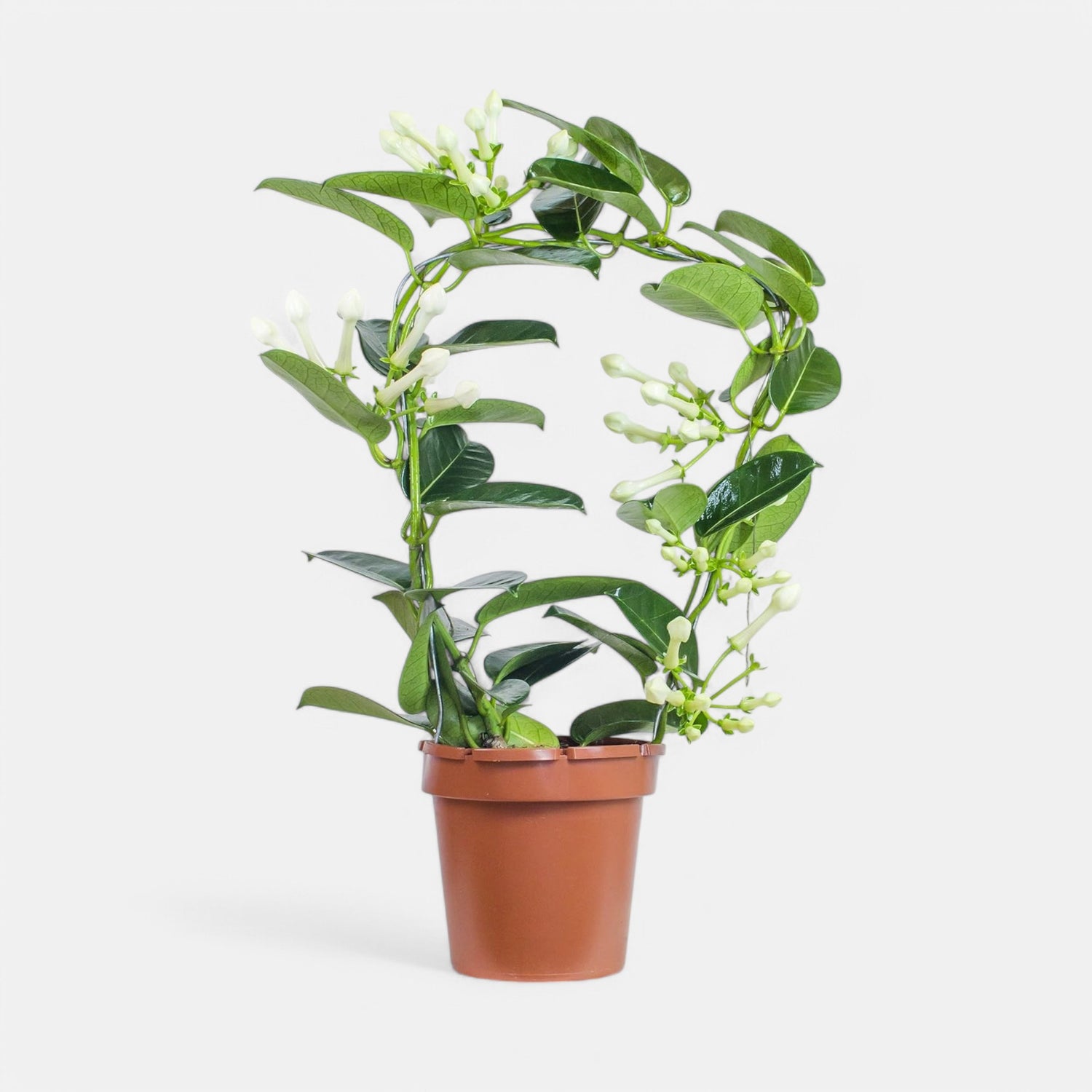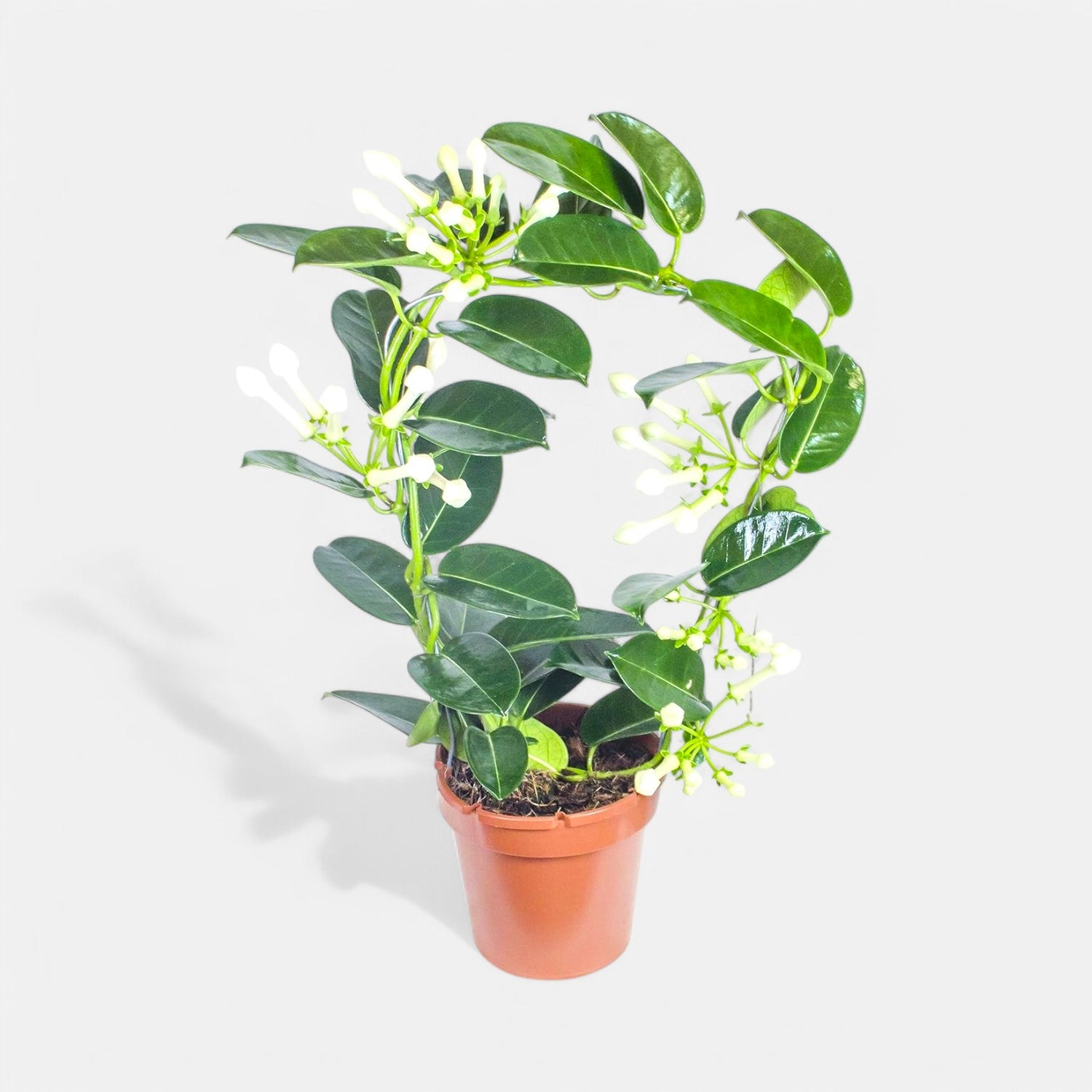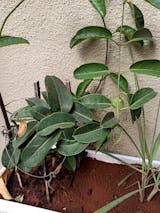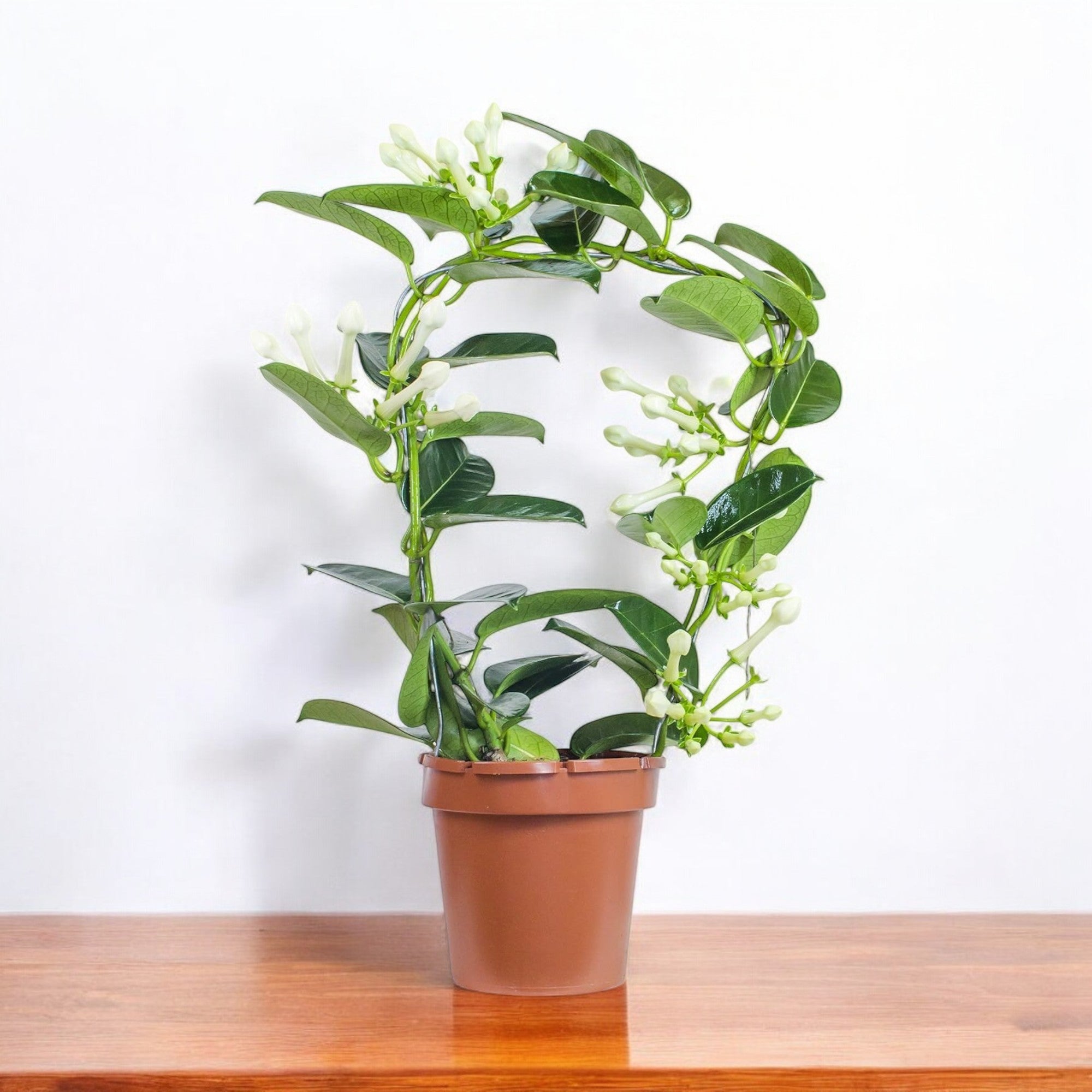
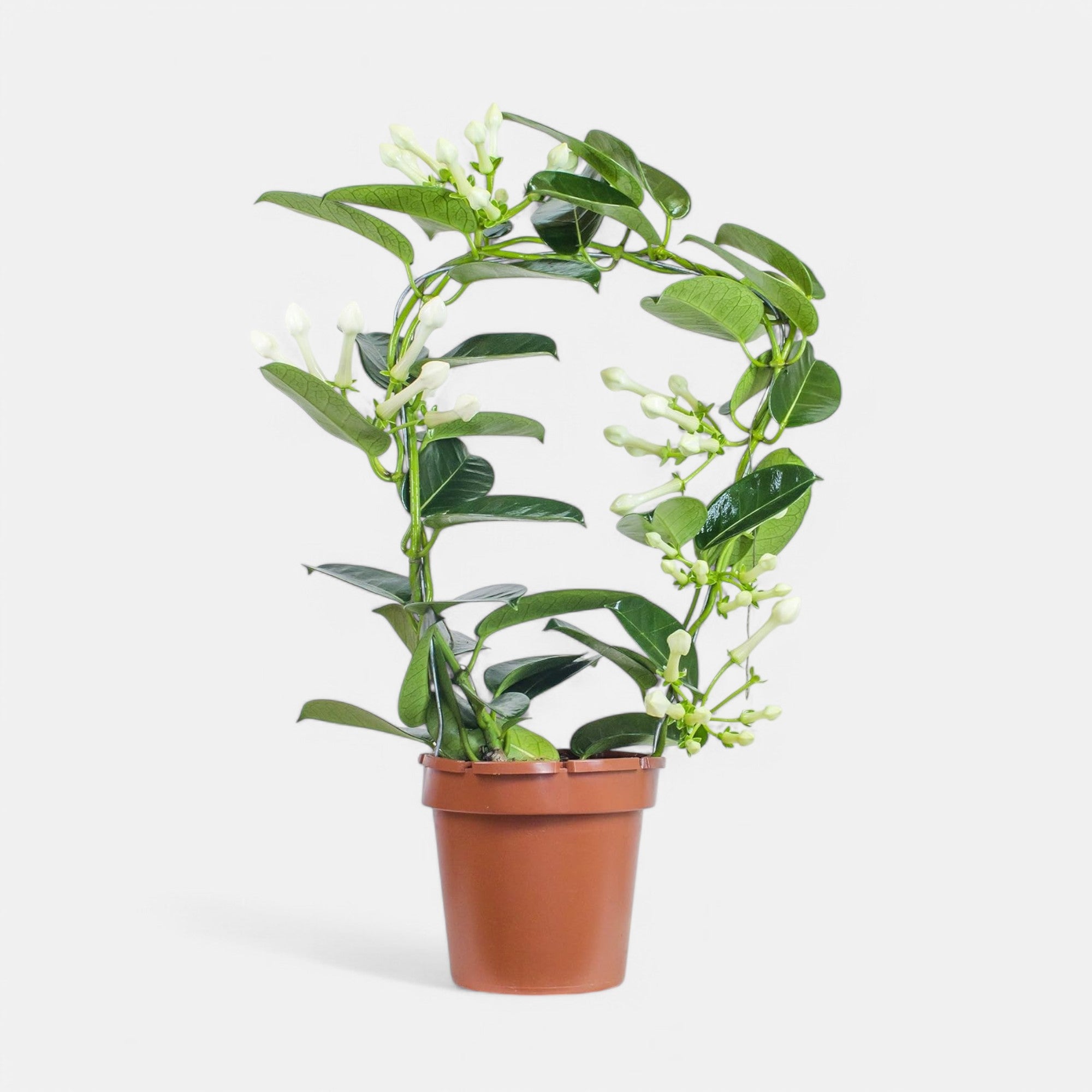
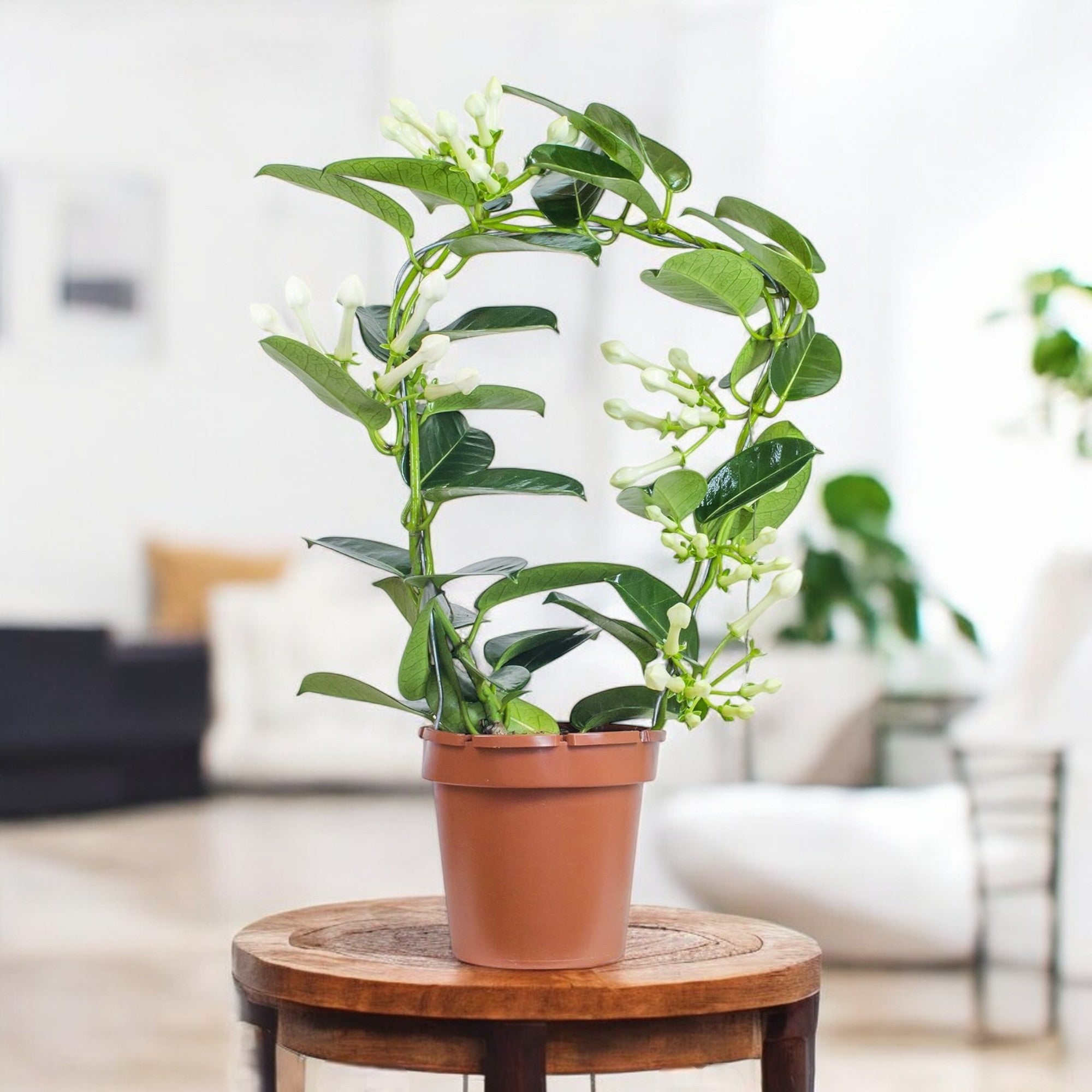
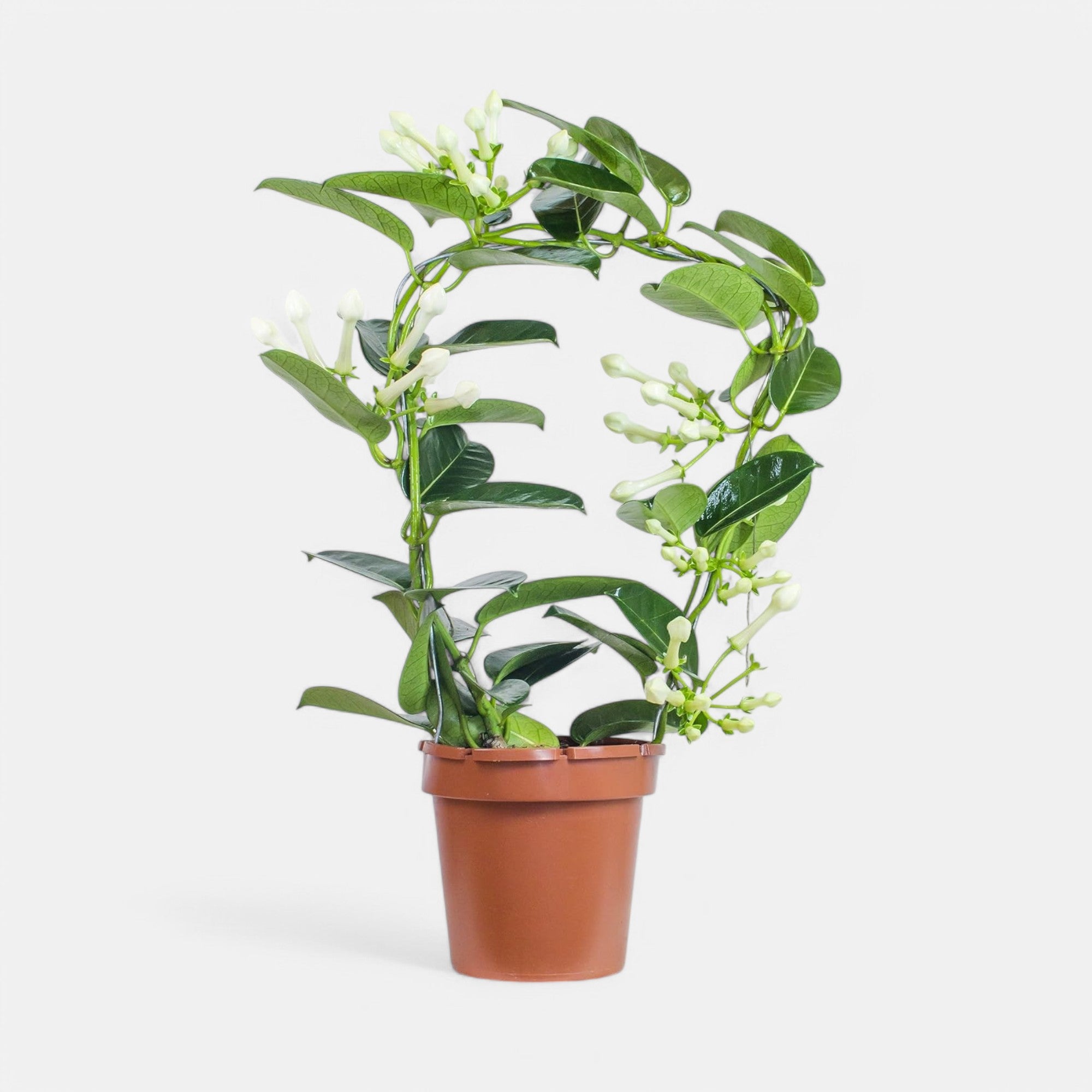
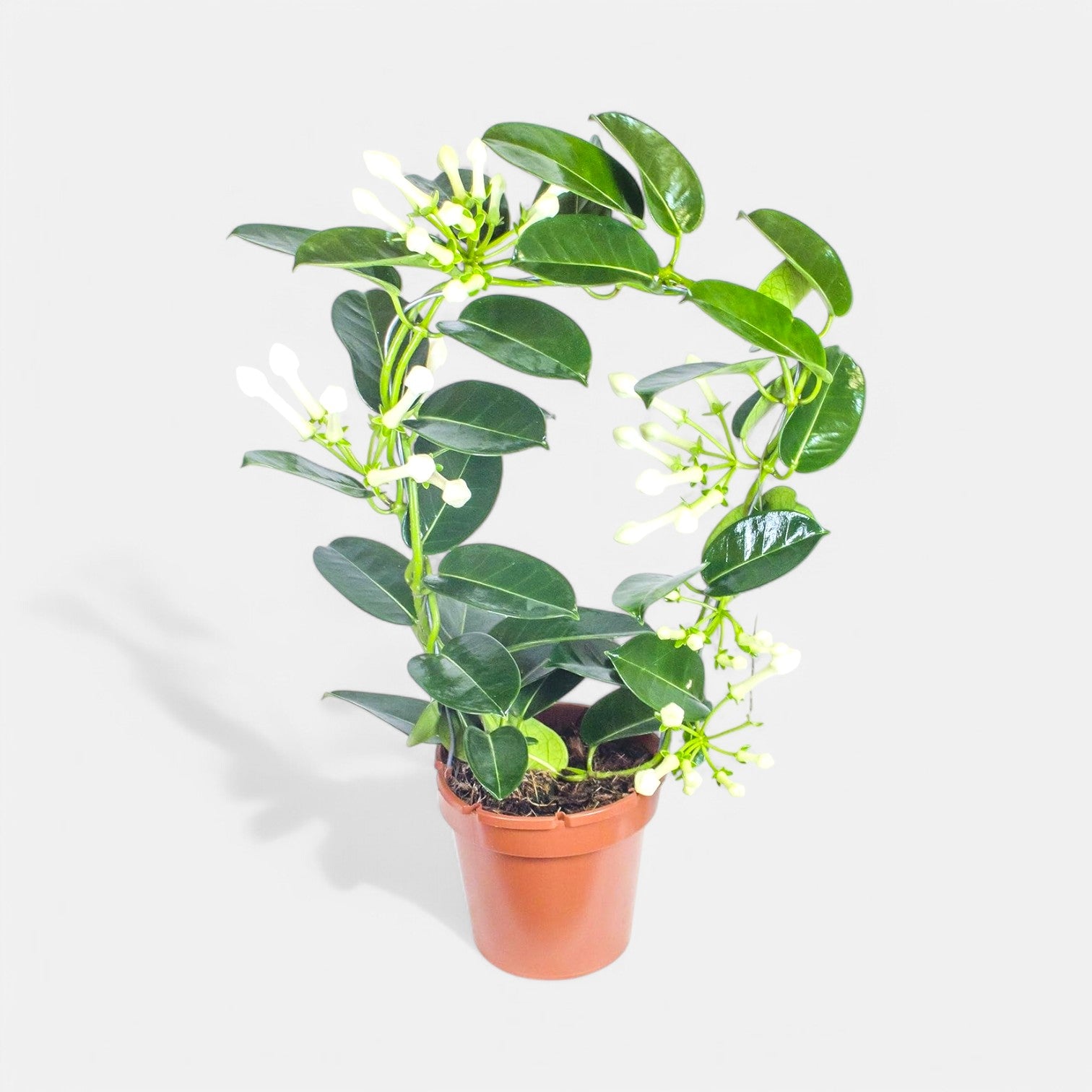
Brief Intro
Buy Madagascar Jasmine Plant (2-3 Feet Height)
Basic Product Details
- Scientific Name: Stephanotis floribunda
- Common Names: Madagascar Jasmine, Bridal Veil, Hawaiian Wedding Flower, Wax Flower
- Plant Height: 2-3 feet (approximately)
- Pot Size: 6-8 inch nursery pot
- Plant Type: Perennial, Evergreen, Climbing Vine
- Soil Type: Well-draining, loamy, slightly acidic to neutral soil
- Sunlight Requirement: Bright indirect light to partial sunlight
Product Overview
The Madagascar Jasmine Plant (2-3 feet height) is a stunning evergreen climber famous for its fragrant, white, star-shaped flowers that bloom in clusters. A popular choice for home gardens, balconies, trellises, and indoor décor, this plant adds elegance and a delightful scent to any space. It is widely used in weddings and floral arrangements, symbolizing purity and love.
With proper care, this fast-growing vine flourishes and produces abundant flowers, making it a perfect addition to both indoor and outdoor gardens.
Features and Characteristics
Growth Habit
- Twining vine that can grow up to 10-15 feet with support.
- Well-suited for trellises, fences, pergolas, and balconies.
Leaves & Flowers
- Glossy, dark green leaves remain lush throughout the year.
- Blooms with fragrant, pure white, waxy flowers from spring to late summer.
Uses of Madagascar Jasmine
Aesthetic & Ornamental Uses
- Ideal for balconies, patios, and garden trellises.
- Perfect for wedding bouquets and floral decorations.
- Can be trained on fences, pergolas, and arches for a stunning look.
Fragrance & Indoor Benefits
- Naturally perfumes the surroundings with a pleasant floral scent.
- Helps reduce stress and enhance relaxation.
Care Guide
Light Requirements
- Prefers bright indirect sunlight but tolerates partial sun.
- Avoid direct harsh sunlight to prevent leaf burn.
Watering
- Water 2-3 times a week, keeping the soil moist but not waterlogged.
- Reduce watering in winter when growth slows.
Soil & Potting
- Requires well-draining, nutrient-rich loamy soil.
- Use a pot with drainage holes to prevent root rot.
Temperature & Humidity
- Grows best in warm temperatures (18-30°C).
- Prefers high humidity; mist leaves occasionally to maintain moisture.
Fertilizer
- Feed with a balanced liquid fertilizer every 2-3 weeks during the growing season.
- Avoid excessive fertilization to maintain healthy flowering.
Pruning & Maintenance
- Prune after flowering to maintain shape and encourage new growth.
- Remove dead flowers and weak stems regularly.
Pest & Disease Control
- Watch out for aphids, mealybugs, and spider mites.
- Use neem oil spray or organic insecticides to keep pests away.
Benefits of Growing Madagascar Jasmine
Health & Wellness Benefits
- Calming fragrance helps reduce anxiety and stress.
- Improves air quality by filtering toxins from the environment.
Aesthetic & Environmental Benefits
- Enhances any space with its lush greenery and elegant flowers.
- Supports pollinators like bees and butterflies.
Placement Suggestions
- Indoor: Near windows, balconies, or well-lit rooms with indirect sunlight.
- Outdoor: Perfect for trellises, fences, patios, and garden walls.
- Hanging baskets: Creates a cascading effect for balconies and pergolas.
Common Questions and Answers About Madagascar Jasmine
How often does Madagascar Jasmine bloom?
It blooms from spring to late summer under ideal growing conditions.
Can Madagascar Jasmine be grown indoors?
Yes, it thrives in bright indoor spaces with indirect sunlight.
Does it require full sun?
No, it prefers bright indirect light or partial sunlight.
How do I increase flowering?
Ensure adequate light, regular watering, and balanced fertilization.
Is Madagascar Jasmine toxic to pets?
Yes, it is mildly toxic to pets if ingested. Keep it out of reach.
How do I prevent yellowing leaves?
Yellow leaves can be due to overwatering, poor drainage, or lack of nutrients. Adjust watering and fertilization accordingly.
The Madagascar Jasmine Plant (2-3 feet height) is a beautiful, fragrant climber that enhances any space. Order now and enjoy its delightful scent and stunning blooms!
FAQs:
What is the Return Policy?
This product is Not Returnable. It may be replaced or refunded in case of damage or defective condition on a case to case basis.
How to cancel my order?
Cancellation for Live Plants is allowed before the dispatched. You can request cancellation through Your Orders page or by contacting customer service within that time.
What if i received damage product?
If a product is received in a damaged or defective condition, you need to contact the customer service within 1 days of delivery. Free of cost replacement or refund claim is available to you.

